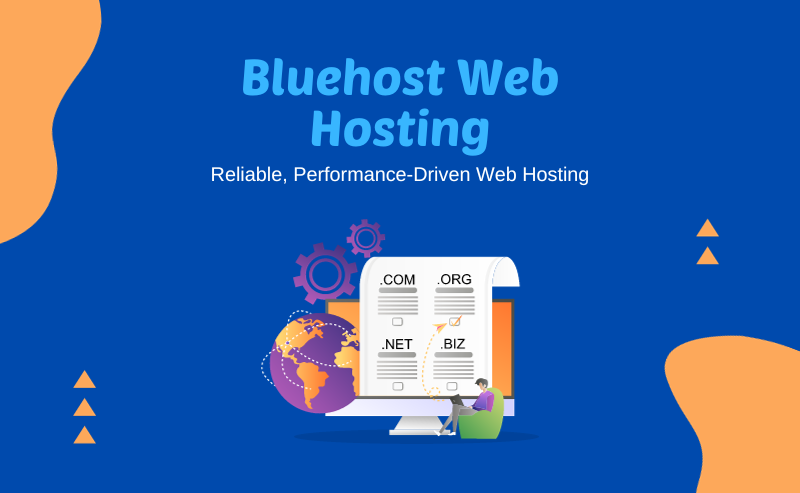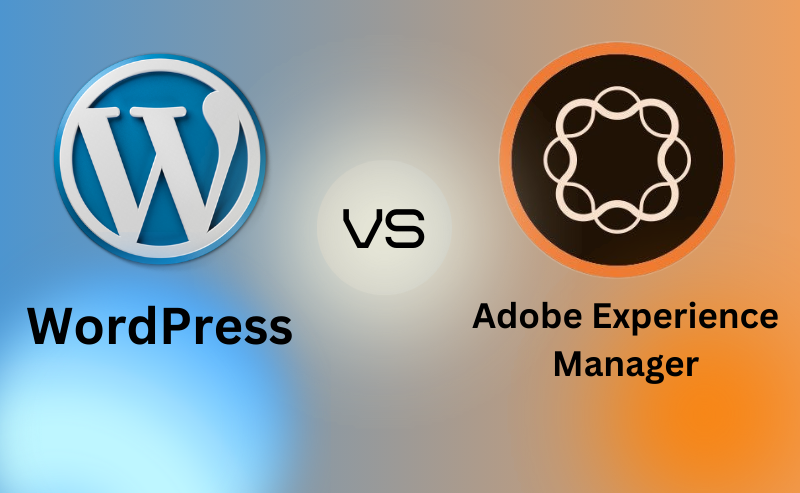Looking to meet your web development needs? Compare Django vs WordPress. Both beginners and experts will find them to be user-friendly and reliable. As a next step, let’s explore the main differences between Django and WordPress. While Django is an efficient framework for developing complex applications, WordPress is an easy-to-use CMS for creating blogs and websites.
In terms of performance, Django excels due to its optimized operations, caching, and security features. It can handle large data and complex functionalities. WordPress may, however, experience performance challenges due to its use of plugins.
It is important to take into account your skill level. WordPress has a straightforward user interface and extensive community support, so it is recommended for beginners. However, Django is best suited for developers with experience in the development of complex applications.
Security should be a top priority. A key feature of Django is its built-in security features and its focus on protecting against vulnerabilities. However, WordPress is more vulnerable and requires careful maintenance, as well as careful plugin selection.
Thinking about transitioning between Django and WordPress? It can be complex. For an easy migration, it is highly recommended that you seek professional assistance or follow tutorials.
Table of Contents
Django vs WordPress: What Are The Key Differences for Web Development?
There are key differences between Django and WordPress in terms of their frameworks and functionalities. Django is a powerful Python-based web framework that focuses on scalability and flexibility, making it ideal for complex web applications that require extensive customization and backend development. Django gives developers full control over the design and functionality of the website, but beginners might find it more challenging to learn.
WordPress, on the other hand, is a widely used content management system (CMS) for creating and managing websites. As a result of its user-friendly interface, a wide range of plugins, and themes, it is suitable for small businesses as well as individuals looking to create a website quickly. WordPress offers excellent ease of use and support for content-focused websites and blogs. It may, however, be less suitable for complex applications or projects that require extensive customization.
When comparing Django vs WordPress, take into account your unique requirements and level of technical expertise. Django may be a better choice if you have advanced programming skills and need extensive customization. However, if you are looking for an easy-to-use platform with a wide range of features and support, WordPress may be the best choice. Additionally, exploring hosting options such as Bluehost or A2 Hosting can provide you with a comprehensive solution for your web development requirements.
Django vs WordPress: How Do They Compare in Terms of Building Complex Websites?
Django and WordPress perform differently when it comes to building complex websites. Django is a high-level Python web framework that is known for its scalability and flexibility, making it an excellent choice for projects of varying complexity. As a result of its efficient codebase and extensive features, it has the ability to develop high-performance websites.
However, WordPress is a widely used CMS that may face performance issues when used on complex websites because of its plugin-heavy design and reliance on PHP.
Django’s performance advantage lies in its ability to handle large amounts of data and complex functionalities efficiently. As a result of its Object-Relational Mapping (ORM) system, its database operations are optimized, and queries are executed more quickly. Furthermore, Django’s built-in security features and caching mechanisms contribute to its overall performance.
WordPress, however, offers a wide range of plugins that simplify the development of complex websites. For content-driven websites and blogs, it remains a popular choice. Choosing between Django vs WordPress requires that you take into account the specific requirements and complexities of your project.
Your complex website may also benefit from a hosting solution such as Bluehost or A2 Hosting if performance is a top priority. You can further optimize your site’s speed and reliability by using these hosting providers’ performance-enhancing features and server configurations. For an informed decision, you should evaluate your project’s needs and consult with professionals.
Django vs WordPress: Which Is Better Suited for Beginners in Web Development?
WordPress and Django are both excellent choices for beginners in web development, but their strengths will vary based on your goals and preferences.
WordPress:
WordPress is often recommended for those looking for a simpler and more user-friendly option. Because it has a large community and a variety of plugins and themes, you can easily customize your website without coding experience. Furthermore, WordPress offers a straightforward user interface that makes it extremely user-friendly and makes it easy for beginners to create a website quickly.
Django:
Django may be more suitable if you want to develop more complex web applications and maintain more control over your website’s structure and functionality. Django is an extremely flexible framework that includes many built-in features and tools for web development and follows the “batteries included” principle. It has a more challenging learning curve, but for those who wish to gain a deeper understanding of programming concepts, Django can be a rewarding choice.
Overall, the choice of Django vs WordPress depends on your particular needs and objectives as a beginner in web development. WordPress may be the better choice if simplicity and ease of use are important to you. Django might be the best fit if you want to develop a more advanced website and want more control.
Django vs WordPress: What Are The Security Differences?
The security differences in Django vs WordPress are significant. Django, a Python-based web framework, places a high priority on security by sticking to strict coding standards and providing built-in protection against common attacks such as XSS, CSRF, and SQL injection. Additionally, its strong authentication system defends against brute-force attacks and ensures that user passwords are hashed.
WordPress, however, is more vulnerable to security risks due to its open-source nature and extensive plugin ecosystem. In spite of this, WordPress has made significant progress in improving security through regular updates, user role management, and plugin security guidelines.
It is recommended to choose a reliable hosting provider like Bluehost or A2 Hosting to enhance the security of both platforms. These providers offer additional security measures like firewalls, malware scanning, and server hardening. You can effectively protect your website and data from potential threats by selecting the right platform and implementing the necessary security measures.
Django vs WordPress: Is It Possible to Transition a Website From One to The Other, and How Is It Done?
It is possible to transition a Django website to WordPress, or vice versa. It can, however, be a complex and time-consuming process due to differences in coding languages and database structures between the two platforms.
In order to migrate from Django to WordPress, you will need to manually transfer your content, including pages, posts, and media files. It may also be necessary to redesign and reconfigure your website using WordPress themes and plugins.
However, if you intend to migrate from WordPress to Django, you must export your content from WordPress and convert it into a format compatible with Django. Moreover, you will be required to rewrite your website’s code and rebuild its functionality using Django’s framework.
Follow these steps to ensure a successful transition:
- Backup Your Website: Before beginning the migration process, it is important to make a backup of your entire website in order to prevent any data loss.
- Transfer Content: You must manually transfer all of your content, including pages, posts, and media files, from Django to WordPress or the other way around. Depending on the platform, this may involve copying and pasting content or exporting and importing data.
- Redesign and Reconfigure: If you are switching from Django to WordPress, you will need to redesign and reconfigure your website using WordPress themes and plugins. If you are transitioning from WordPress to Django, it will be necessary to rewrite your website’s code and recreate its functionality using Django’s framework.
- Test and Optimize: Once the migration is complete, thoroughly check your website to ensure the content, links, and functionality are working correctly. Maintain your website’s visibility and user experience by optimizing it for performance and search engine.
- Seek Professional Assistance: If you are unfamiliar with the migration process or experience any difficulties, consider seeking professional assistance or using hosting services that offer both Django and WordPress support, such as Bluehost and A2 Hosting.
It is possible to migrate a Django website to WordPress, or vice versa, while maintaining the site’s structure and content flow if you follow these steps and plan your migration carefully.
Django vs WordPress: Which Platform Is More Cost-Effective to Develop and Maintain?
Django vs WordPress: Open-source platforms with differing cost implications. As Django, a Python-based web framework, usually requires more expensive hosting solutions, such as a VPS or cloud service, which could result in an increase in overall costs. Additionally, Django development costs may be higher due to the need for skilled Python developers, as well as ongoing maintenance costs.
More information about Django can be found here
On the other hand, WordPress is known for its ease of use and can be hosted on cheaper shared hosting services. There is a wide range of themes and plugins available, which can significantly reduce development time and costs, allowing even non-technical users to manage and update websites without the need for extensive professional assistance.
You can view WordPress’ pricing plans here
Generally, WordPress sites cost less to set up than Django sites. Over time, the complexity and scale of the website will determine ongoing costs; WordPress could remain more economical for straightforward sites, while Django might offer better value for complex applications.
Django vs WordPress: Which Web Development Platform Is Right for You?
WordPress vs Django: Each has its own strengths and is suited to different types of web development. Django is a powerful and flexible Python-based framework that excels at developing complex applications, offering stable performance and strong security features.
On the other hand, WordPress is a straightforward, user-friendly CMS perfect for beginners looking to quickly build content-centric websites. You can choose the right platform by evaluating your specific needs, technical expertise, and security requirements.
You should be aware that transitioning between the two can be complex, so consider seeking professional help or using hosting services such as Bluehost or A2 Hosting for support. If you consider these factors carefully, then you’ll be able to choose the best platform for your web development project.


